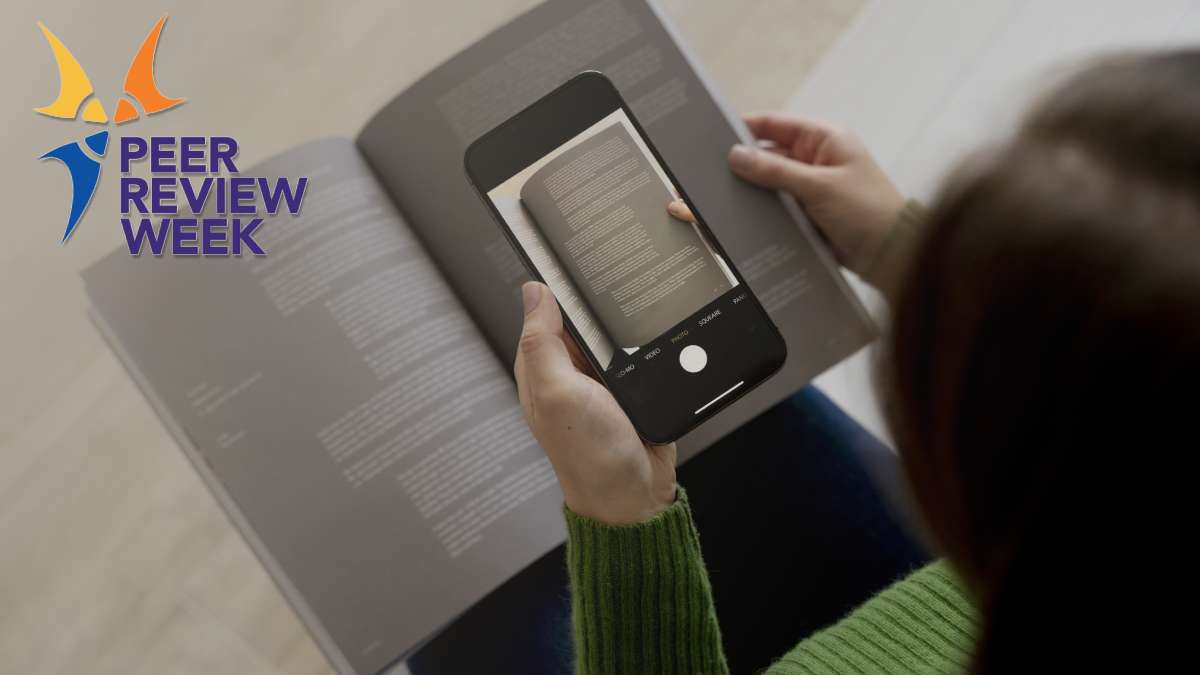Peer Review Week 2025: Rethinking Peer Review in the AI Era

What does "peer review" mean in a world where AI can write, edit, and even recommend citations? That’s the bold question behind the newly announced theme for Peer Review Week 2025: "Rethinking Peer Review in the AI Era."
This timely and forward-looking theme invites the global scholarly community to examine how artificial intelligence is transforming the peer review process, and what this means for the future of research integrity, editorial responsibility, and scientific trust.
Selected through a two-stage global consultation led by the Peer Review Week Steering Committee, the theme reflects widespread interest in how AI is being integrated into scholarly publishing workflows. From AI-assisted manuscript evaluations to algorithm-generated summaries and reviewer suggestions, the tools are evolving rapidly. But so are the questions around transparency, accountability, and fairness.
At the Asian Council of Science Editors (ACSE), we see this as an important opportunity to reflect on our roles as editors, reviewers, publishers, and researchers in this changing landscape. We encourage our members to stay informed and engaged in the evolving conversation about peer review practices in the AI era.
Areas of Focus That Will Shape the Discussion
- AI-assisted reviewing: How AI tools are supporting or challenging traditional reviewer roles
- Reviewer ethics and authorship: Navigating submissions created or heavily assisted by generative AI
- Bias and transparency: Addressing algorithmic opacity and the need for explainability
- Disclosure and accountability: Establishing norms around when and how AI use should be disclosed in peer review or manuscript preparation
- Training and adaptation: Building AI literacy among editors and reviewers to make informed, responsible decisions
- Redefining trust: Rethinking how we measure originality, authorship, and scholarly contribution in a digital, AI-driven context
ACSE remains committed to amplifying discussions around research integrity and editorial best practices across Asia and beyond. While we are not hosting formal activities during Peer Review Week this year, we strongly encourage our network to follow updates, participate in global events, and explore resources shared by the organizing committee at www.peerreviewweek.net.
As AI continues to reshape scholarly publishing, one thing remains clear: the values that underpin high-quality peer review, rigor, fairness, and trust are more important than ever.
Let us not only respond to these changes but help shape their direction with responsibility and vision.
Keywords
Peer Review Week 2025 AI scholarly publishing peer review artificial intelligence peer review ethics research integrity ACSE academic publishing AI-generated content reviewer responsibility publishing innovation AI-assisted peer review future of peer reviewDisclaimer
The views and opinions expressed in this article are those of the author(s) and do not necessarily reflect the official policy or position of their affiliated institutions, the Asian Council of Science Editors (ACSE), or the Editor’s Café editorial team.



